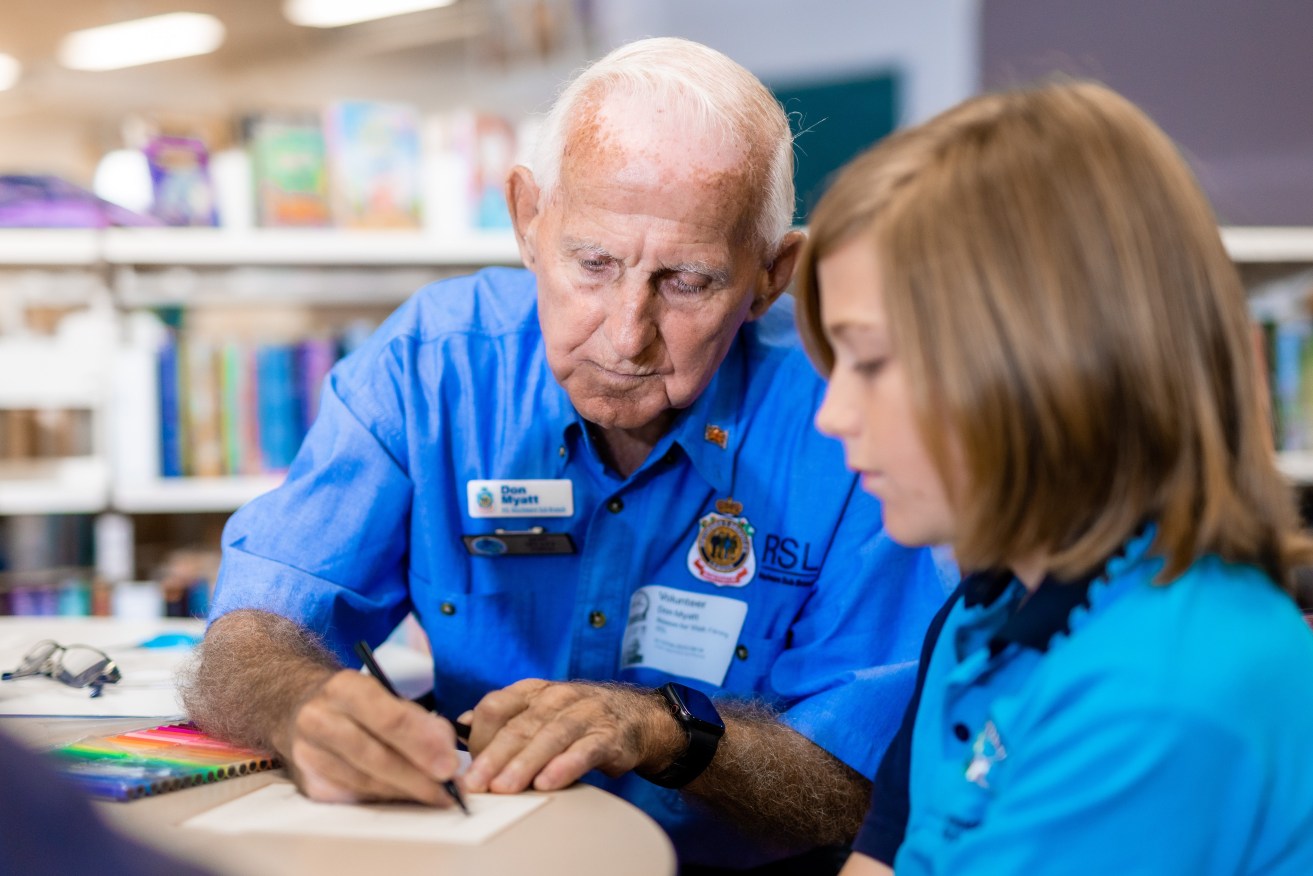The write stuff: Qld kids get on history’s page to honour our Anzacs
A generation born into a world of email and instant messaging is learning the lost art of letter writing as a tribute to veterans ahead of Anzac Day.


Hundreds of children across South East Queensland are writing letters to Australian armed forces veterans and serving personnel ahead of Anzac Day on April 25. Image: RSL
Students from across South East Queensland will pen hundreds of postcards to honour and thank veterans for their service, an initiative launched by RSL Queensland.
State president, Major General Stephen Day, describes the Postcards of Honour program as “creative and educational”, while acknowledging the men and women who served in the country’s armed forces through the creation of handwritten and illustrated postcards.
Day said students were encouraged to explore their personal connection to Anzac Day, with a focus on how the past has influenced the outcomes possible for their future.
“We are looking forward to seeing this activity engage more than 10,000 primary school children across the state as they take the time to honour and thank local veterans for their service,” Day said.
“This initiative is an important opportunity for the next generation to connect with the power of the Anzac spirit and their local veteran community.”
Griffith University historian Dr Yorick Smaal said the RSL had played a major role in ensuring Australians would never forget the sacrifices made during wartime, both on the battlefield and on the home front, where letter writing to soldiers was pivotal to sustaining morale.
He said those stories forged through war and conflict continued to resonate with everyday Australians and reverberate through politics, business and culture.
“Origin stories are hard to shake – history is one of the central ways we understand who we are,” he said.
“We are continually shaped by our past relationships.”
Smaal said Anzac Day was also an opportunity to reflect on the historical conditions of commemoration, giving Australians a moment to consider what they remember, how, and why.
He said this had particular relevance in 2023, as Australians reconcile with the colonial past and Queensland embarks on a path to treaty as outlined by Premier Annastacia Palaszczuk earlier this year.
“Gallipoli’s elevation has come at the expense of other narratives, sweeping the frontier wars to the margins of our national story,” he said.
“Familiarity with a history contextualising First People’s life expectancy, intergenerational trauma, and criminal justice statistics, along with accounts of resistance, activism, and diplomacy, demands an exercise in Truth Telling rarely mandated by other wars.
“Until we grapple with that conflict and its consequences, we diminish the service and sacrifice of those who fought and fell on distant shores more than a century ago by precluding meaningful change reflecting values of tolerance, respect and inclusion.”
As part of the RSL Queensland initiative, students will have the opportunity to explore the historic significance of postcards and letters during wartime, particularly focusing on how communication provided vital connection and support to those serving in the armed forces.
Each participating school will receive a presentation from their local RSL Queensland sub branch and all postcards are set to be hand distributed to veterans across Queensland – building connections within communities and across generations.
Day said postcards and letters had historically offered vital connection and support to those serving in the military.
“In the same way, Postcards of Honour provides each veteran with a personal and tangible token of gratitude, while also encouraging each child’s unique creative expression,” he said.












